Mohammad Bayazeed Khan Panni
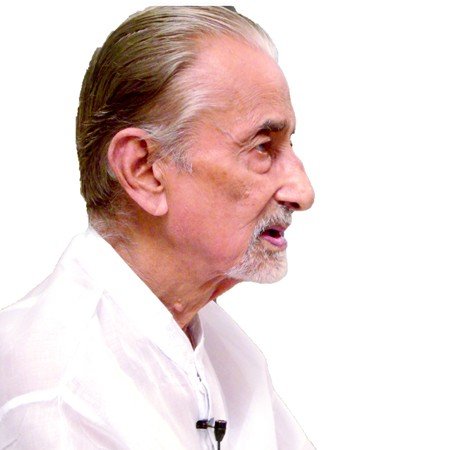 A brief biography of Mohammad Bayazeed Khan Panni, the founder of Hezbut Tawheed
A brief biography of Mohammad Bayazeed Khan Panni, the founder of Hezbut Tawheed
The family is a person's first educational institution. The familial education, culture, tastes, preferences, and thoughts deeply influence the character structure of every individual. One of the most ancient and prestigious families in the Indian subcontinent is the Panni family of Karatia in Tangail.
The Panni Family
Imamuzaman Mohammad Bayazeed Khan Panni, the founder of the non-political movement Hezbut Tawheed, which promotes the teachings of true Islam, hails from this family. According to Islamic tradition, Shab-e-Barat is regarded as the Night of Destiny. This great man, who possessed a unique blend of spiritual and worldly qualities, was born on this auspicious night, corresponding to the 11th of March 1925. He was a living embodiment of truth, with no instance of falsehood in his eventful 86-year life.
During the Sultanate and Mughal eras, the Panni family were rulers and administrators of a vast region. They were independent Sultans of Gaur for a long time (1563-1576 AD). Sultan Daud Khan Panni (Karrani) sacrificed his life in the historic Battle of Rajmahal to protect the Sultanate of Bengal from Mughal aggression. The family's contributions are intertwined with the history, education, and culture of Bangladesh. Wajed Ali Khan Panni, the founder of 'Sa'adat College,' renowned as the Aligarh of the East, and Nawab Nawab Ali Chowdhury, a major initiator and donor for the establishment of Dhaka University, were notable members of this extended family.
Education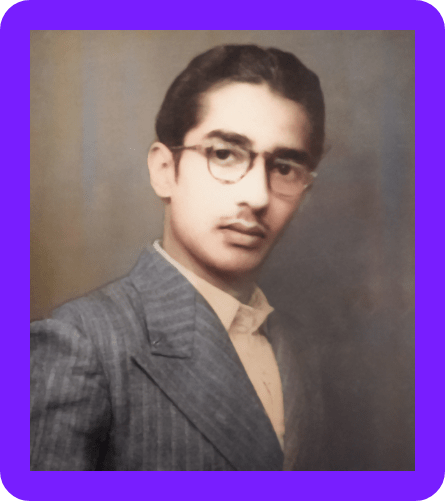
His childhood was spent in the village of Karatia. He began his education at Rokaiya High School Madrasa. After two years, he was transferred to H.M. Institution, from where he passed his matriculation in 1942. He briefly studied at Sa'adat College before enrolling at Azizul Haque College in Bogra. He completed his higher secondary education at Islamia College, Kolkata.
Imamuzzaman in the Anti-British Movement
While studying in Kolkata, a hub of the anti-British movement, the young Imamuzaman became actively involved in the struggle against British rule. He was in the company of legendary leaders like Mahatma Gandhi, Quaid-e-Azam Mohammad Ali Jinnah, Aurobindo Ghosh, and Shaheed Hossain Suhrawardy. He joined Allama Inayatullah Khan Al-Mashriqi's 'Tehrik-e-Khaksar' movement. Imamuzzaman quickly surpassed his senior leaders, becoming the Commander of East Bengal. He was selected as one of the 96 'Salar-e-Khas Hind' for special tasks across India, at the young age of 22. He returned to the erstwhile East Pakistan shortly after the partition.
Renowned Physician
After passing intermediate, he studied homeopathy and became one of the country's top homeopaths. His patients included prominent figures like former President Abu Sayeed Chowdhury, former Prime Minister Ataur Rahman Khan, and national poet Kazi Nazrul Islam. Bangabandhu Sheikh Mujibur Rahman appointed him as the sole homeopath on the national poet, Kazi Nazrul Islam’s medical board.
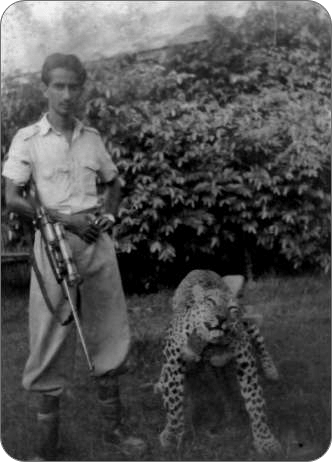 Avid Hunter
Avid Hunter
He had a passion for hunting wild animals, a skill he learned from his grandfather Mohammad Haider Ali Khan Panni and father Mohammad Mahdi Ali Khan Panni. He hunted from childhood until the early 1970s. He wrote the "Bagh-Bon-Bandook" (Tiger-Forest-Gun), the first book on hunting in the jungles of Bangladesh, which was included in the tenth-grade curriculum of the East Pakistan Education Board upon the recommendation of martyred intellectual Munir Chowdhury. Many esteemed writers and individuals praised the book.
Skilled Athlete
He was a national-level shooter, skilled footballer, and motorcycle stuntman. In 1956, he became the champion in East Pakistan's first rifle shooting competition, leading to his selection as one of Pakistan's shooters for the Melbourne Olympics that year. To revive the national sport of kabaddi, he established the 'Tawhid Kabaddi Team,' which has organized numerous tournaments nationwide and performed well in national federation tournaments.
Writer and Publisher
Begum Sufia Kamal, a relative of Imamuzzaman, had her poetry book 'Mon O Jibon' published by him in 1957. He wrote many articles for newspapers and magazines. In 2008, he founded 'Tawheed Publications.' Among his nine books are "E Islam Islam-e Noy," "Dajjal? Judeo-Christian ‘Civilization’!," "The True Outline of Islam," "The Real Salah of Islam," and "The Lost Islam."
Youngest Member of Parliament
Many family members were active in politics. His uncle Mohammad Ali Bogra was the Prime Minister of Pakistan. His cousin Khurram Khan Panni was the Chief Whip of the Legislative Assembly and Bangladesh's ambassador to the Philippines. Another cousin, Humayun Khan Panni, was Bangladesh's ambassador to Pakistan and Deputy Speaker of the National Assembly. His nephew, Wajed Ali Khan Panni, was the Deputy Minister for Youth and Sports in the Bangladesh government. His maternal uncle Syed Hasan Ali Chowdhury was the Minister of Industry in East Pakistan.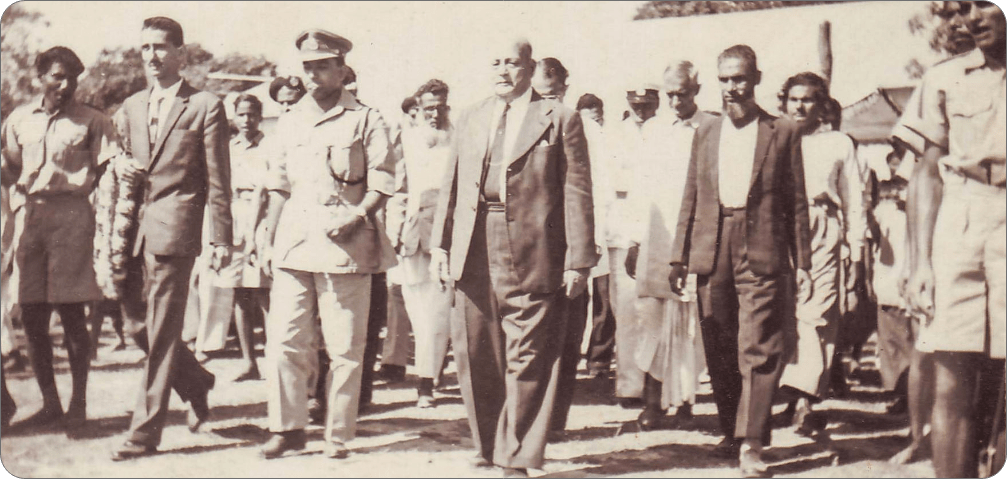
In 1963, he contested as an independent candidate from Tangail-Bashail, despite pressure from political relatives and the opposition of many, including Maulana Bhashani, who refused to campaign against him. He won the election, forfeiting the deposits of six rivals, and became the youngest member of the Provincial Legislative Assembly. Despite his youth, he commanded respect from senior politicians.
During the 1964 riots in East Pakistan following the theft of the Prophet Muhammad's hair from the Hazratbal shrine in Jammu and Kashmir, he risked his life to quell communal violence. He later withdrew from politics, unable to reconcile with the hypocrisy, communal hatred, and selfishness he saw. He publicly denounced the ruling Muslim League's politics.
Dedicated Social Worker
During the cholera epidemic of 1956-1958, which claimed countless lives in Bangladesh, he personally administered vaccines to thousands. In 1963, he founded the Haider Ali Red Cross Maternity and Child Welfare Hospital in Karatia, which continues to serve the local community till today. In 1998, he founded the Sa'adat Welfare Foundation, a charitable organization for the development of disabled children.
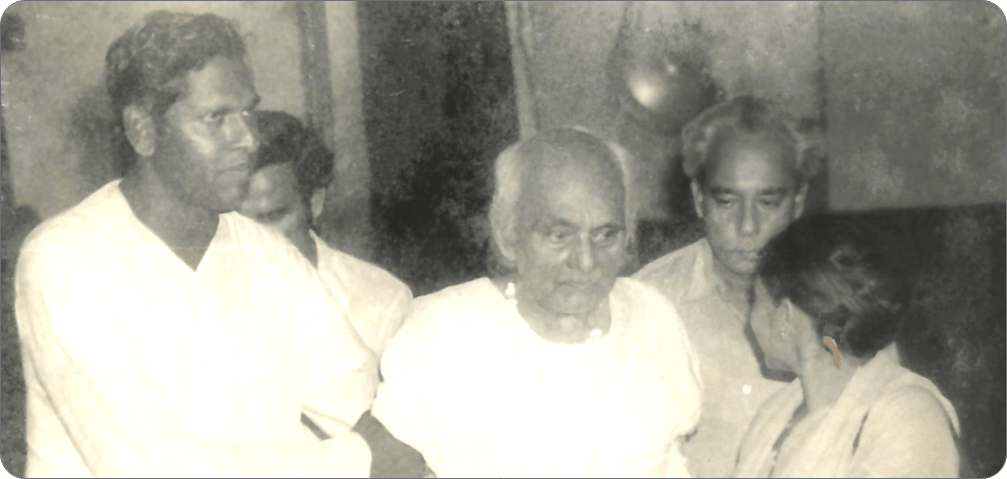 Founding Member of Nazrul Academy
Founding Member of Nazrul Academy
He was deeply involved in cultural activities, having trained in classical music under Mohammad Hossain Khosru, a renowned music personality of the subcontinent, and shared the same teacher as national poet Kazi Nazrul. He was a founding member of Nazrul Academy, established to preserve Nazrul's legacy.
Founding Hezbut Tawheed
From an early age, he questioned why Muslims were subjugated by Western masters if they were chosen by Allah. Gradually, through Allah's mercy, he began to understand the reasons behind this degradation. He realized that the Islam followed today is fundamentally different from the religion established by the Messenger of Allah, Muhammad (sm) 1400 years ago. He elucidated the true creed of Islam, the essence of Tawheed, the meaning of worship, the conditions for being a believer and a member of the Ummah of Muhammad, guidance, Taqwa, the true purpose of Salah, the method of establishing Deen, the five-point program, and how to implement them. He explained that the current Judeo-Christian mechanical 'civilization' is the Dajjal foretold by the Messenger of Allah(sm).
In 1995, he founded the movement ‘Hezbut Tawheed' to propagate the true teachings of Islam. Through this movement, he highlighted the failures of Western civilization, extremism, and communalism while presenting a comprehensive understanding of Islam. His truths, unpalatable to many with vested interests, sparked strong opposition from extremist religious groups, leading to multiple arrests in his old age. Despite threats, he remained undeterred, dedicating his wealth and social standing to combat extremism and religious bigotry.
Passing
On 16 January 2012, Imamuzzaman Mohammad Bayazeed Khan Panni passed away and was buried in their family cemetery in Gorai, Mirzapur, Tangail.
The ruins of the Panni Zamindar House, located in Gorai, Mirzapur Upazila of Tangail District, bear historical significance. In the early 16th century, Emperor Jahangir appointed Saeed Khan Panni as the Subedar of Atiya Pargana, who later settled in Gorai. At that time, Gorai was a jungle-covered area included in Bhawal Garh, known as Kohestane Dhaka. Gradually, a developed city emerged here, with the Banshi River of Madhupur Garh as the main route of transportation.
In the mid-18th century, Sadat Khan Panni relocated the family residence and zamindar house from Gorai to Karatia. However, a branch of the family still resides in Gorai. Although the previous palatial buildings have long been lost to history, the family cemetery and some ruins still remain.
The Government's Department of Archaeology needs to take initiatives to preserve these, to protect these heritage sites from extinction.
The burial site of Imamuz Zaman's ancestors in Gorai is considered a sacred place. Revered figures like Hazrat Moin Khan and Sufi saint Haider Ali Khan Panni are buried here. Thousands of people visit the tomb of Moin Khan Panni every year to show their devotion and respect, and they organize feasts in his honour. On these occasions, arrangements are made to feed the poor and needy in the surrounding area, which symbolizes the love and respect of the local people.
Gorai is known as the final resting place for many members of Imamuz Zaman's family. His grandfather,+ parents, wife, eldest son, and sisters are buried here. This place is extremely important to their family and is considered a sacred pilgrimage site by the local residents.
His spiritual successors continue to work to spread his teachings worldwide.
Video speech
To make sure all Citizen rights, you have to work together and make better country for our child. So we have to take initiative proper
